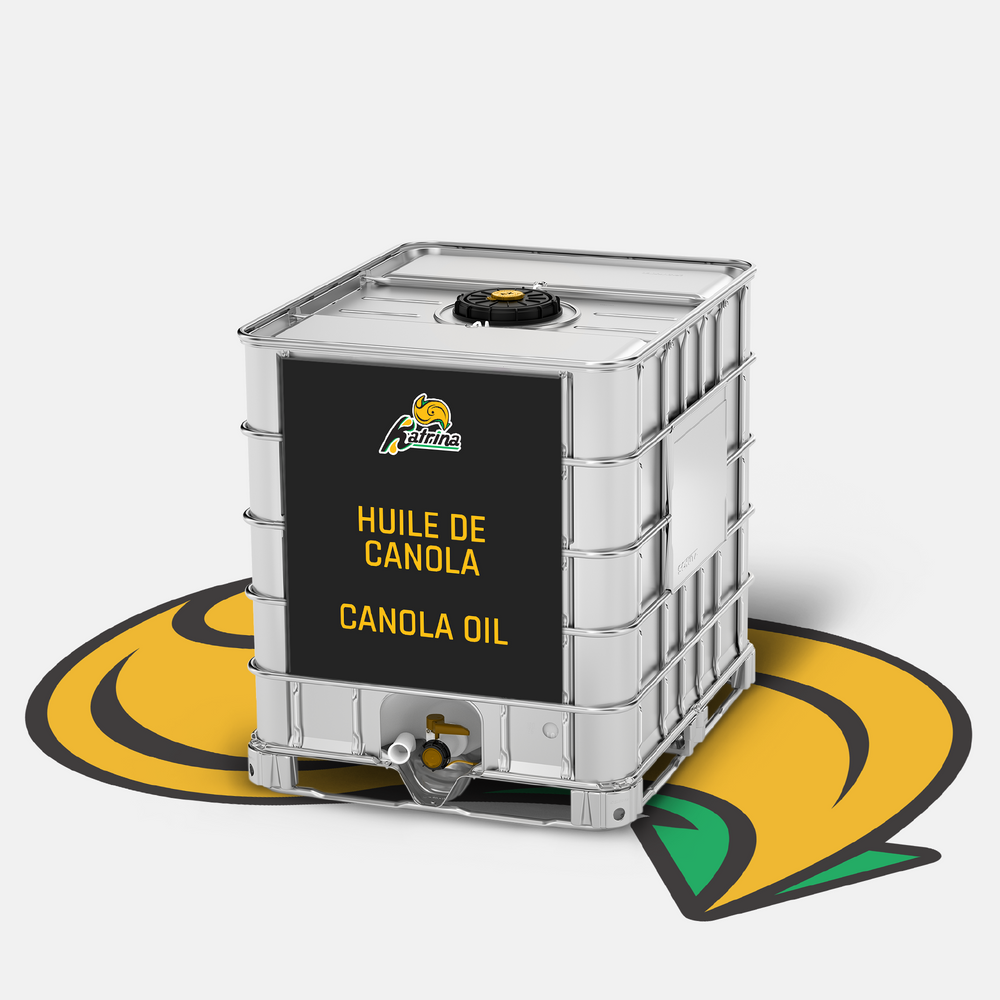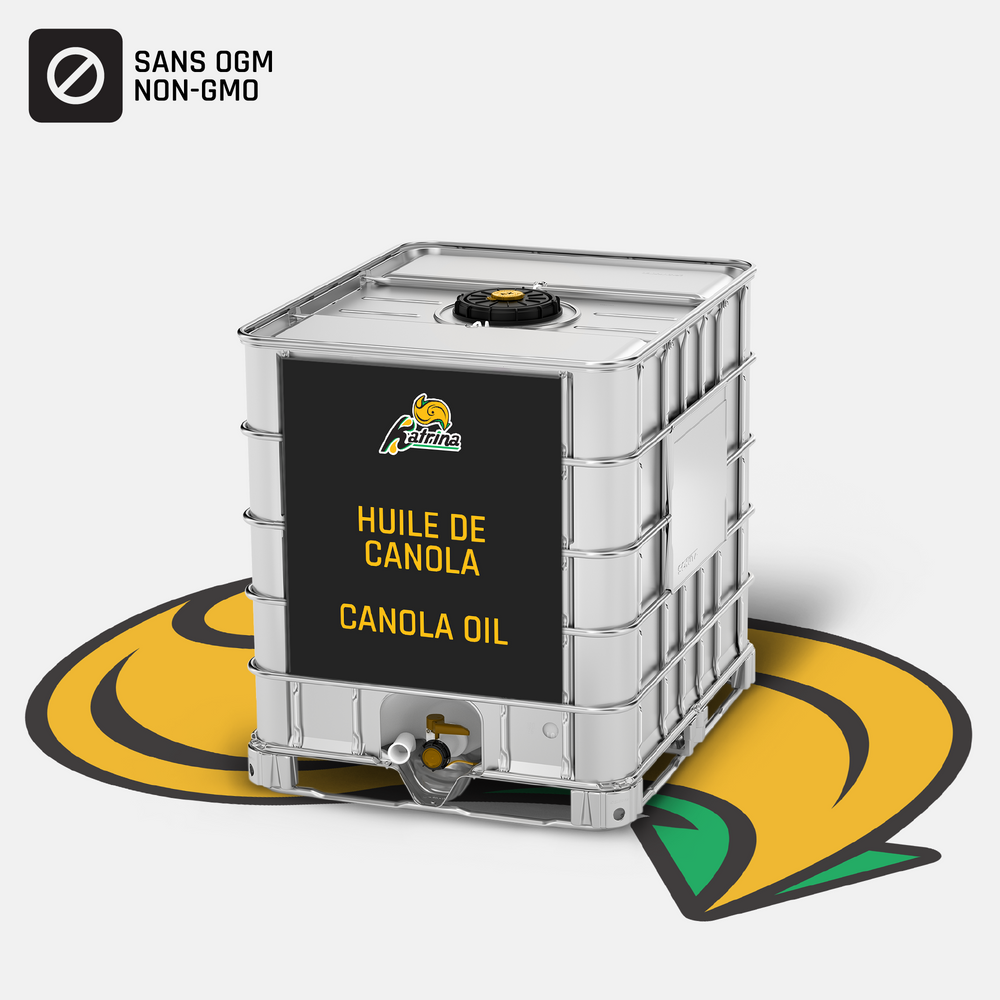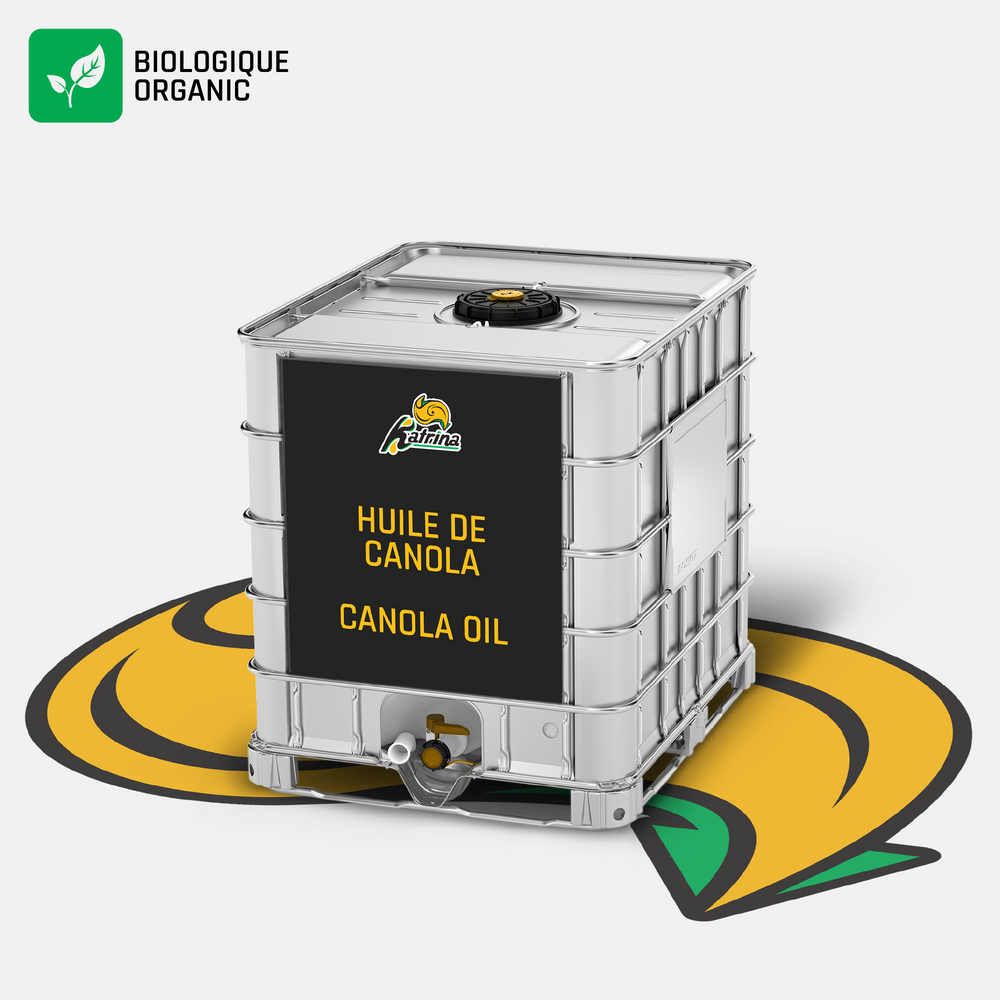Groundnut (Peanut) Oil vs. Canola Oil: Which is Better?
Groundnut oil (also known as peanut oil) and canola oil each have unique properties, benefits, and applications.
Both oils are excellent choices, but selecting the right one depends on your culinary preferences, health goals, and budget.
In our guide, we’ll go over how the two oils differ, what matters for those in the food industry, and how to choose depending on your needs.
What is Groundnut Oil?
Groundnut oil, commonly called peanut oil, is extracted from peanuts (Arachis hypogaea). This light, golden oil has been a staple in many cuisines, cherished for its high smoke point and nutty flavour.
Groundnut oil is rich in monounsaturated and polyunsaturated fats, making it a heart-healthy option. It also contains vitamin E and resveratrol, a powerful antioxidant with anti-inflammatory properties.
What is Peanut Oil?
Peanut oil is actually the same thing as groundnut oil. It’s an edible vegetable oil made from extracting the oil of peanuts, and then refining it. Peanut oil is known for its neutral flavour and high smoke point.
Why is Peanut Oil Sometimes Called Groundnut Oil?
Although they are commonly called “peanuts” in most of the world today, the seed of this plant actually grows underground. This is why they are also referred to as “groundnuts”, and “groundnut oil”.

How Peanuts Grow (Source: National Peanuts Board)
What is Canola Oil?
Canola oil is derived from the seeds of the canola plant, a variant of rapeseed developed in Canada in the 1970s. The name "canola" stands for Canadian Oil, Low Acid.
With a high content of monounsaturated fats and alpha-linolenic acid (an omega-3 fatty acid), canola oil is recognized for its cardiovascular benefits. It also has a favourable omega-3 to omega-6 ratio, making it an excellent choice for a balanced diet.
Groundnut Oil vs. Canola Oil: Nutritional Differences
To understand the nutrition and health benefits of groundnut oil vs. canola oil, we can start by looking at the basics:
| Nutrient | Canola Oil | Groundnut Oil/Peanut Oil |
| Total Fat | 14g | 13.5g |
| Saturated Fat | 1g | 2.3g |
| Monounsaturated Fat | 8.9g | 6.2g |
| Polyunsaturated Fat | 3.9g | 4.3g |
| Vitamin E | 2.4mg | 2.1mg |
| Other Nutrients? | Vitamin K | Resveratrol (antioxidant) |
Both oils support heart health, but groundnut oil excels in antioxidant content, while canola oil boasts a superior omega-3 profile.
Which Is Healthier, Peanut or Canola Oil?
Both peanut oil and canola oil have their own health benefits and considerations. Peanut oil is higher in saturated fat and contains antioxidants, but also has a higher omega-6 to omega-3 ratio, which may contribute to inflammation if consumed in excess.
Canola oil, on the other hand, is lower in saturated fat and has a more balanced omega-6 to omega-3 ratio, making it a heart-healthier choice. Canola oil is generally considered the healthier option thanks to this, but the nutritional differences between canola vs. groundnut are generally minor.
Groundnut Oil vs. Canola Oil: Smoke Point
The smoke point is a critical factor when selecting cooking oils.
Groundnut oil and canola oil do slightly differ in this regard:
- Peanut/Groundnut Oil Smoke Point: 450°F (232°C)
- Canola Oil Smoke Point: 400°F (204°C)
According to MasterClass, peanut oil is a favourite frying oil among top chefs, “Chef Thomas Keller and Wolfgang Puck included.”
Peanut Oil vs. Canola Oil: Flavour
Another factor that impacts cooking results is the flavour. While both are somewhat neutral, groundnut oil may have a slightly nutty finish. For baking and other delicate recipes, canola oil is a better choice since it won’t impact the flavour at all.
Keep in mind that the flavouring of peanut oil/groundnut oil can vary depending on the refinement level.
Reddit user gansmaltz explains, “Roasted peanut oil is used as a flavoring similar to sesame oil. Refined peanut oil is usually allergen free and is used for frying because it has a higher smoke point than canola oil (450 F vs 400 F).”
Groundnut Oil vs. Canola Oil: Cost Considerations
According to USDA data, canola oil is generally a bit cheaper than peanut oil (ranging around 6-10% cheaper) making it an attractive choice if you need to cut costs or increase your profit margin. However, keep in mind that pricing may vary regionally, so it’s important to get a local quote from a bulk supplier.
Canola oil is typically more affordable than groundnut oil, but it also may be easier to find in variants like organic and non-GMO, since it’s a more widely produced oil.
Peanut Oil vs. Canola Oil: Allergen Considerations
One of the biggest considerations when it comes to peanut oil is regarding allergies. However, you might be surprised to learn that most refined peanut oils and groundnut oils are generally safe for those with peanut allergies, per FDA guidelines.
However, due to the serious nature of allergens, it’s crucial to check with your peanut oil supplier and always verify allergen information.
On the other hand, canola oil is allergen-free by nature, making it a slightly safer choice for establishments with diverse customer needs.
Which Oil Should You Choose?
💡 Did you know: Five Guys is known for using groundnut oil (peanut oil) in their restaurants, and McDonald’s uses a canola blend for their iconic fries.
At the end of the day, canola oil vs. groundnut oil completely depends on your needs and even your palate. Groundnut oil may be a good option for frequent deep-frying or if you are looking for a specific flavour profile. However, for general use, canola oil is cost-effective, neutral and versatile.
Here’s a quick guide that may help you make your decision:
- Your menu: Peanut oil may add a nutty flavour, while canola oil won't contribute. However, most refined peanut oils are quite neutral.
- Your cooking methods: Peanut oil has a slightly higher smoke point.
- Your budget: Canola oil may be slightly cheaper than peanut oil.
- Customer dietary preferences: Your customer base may be looking for a specific feature or flavour.
- Local health and allergen regulations: Check if your peanut oil is refined & safe from allergens.
If you need help choosing a vegetable oil for your project, please contact our experts today, we will be happy to help!













